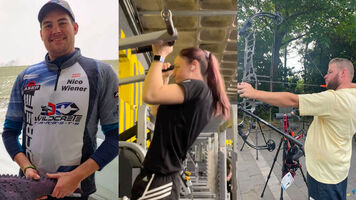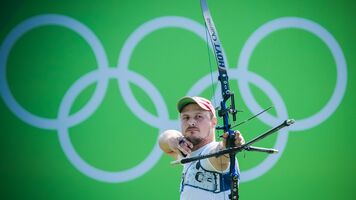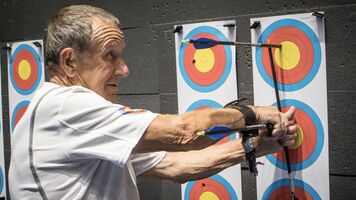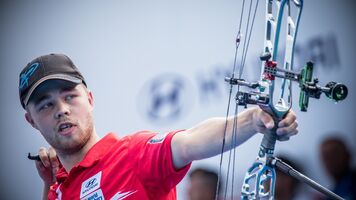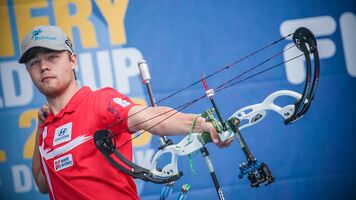Archers embrace globetrotting opportunities
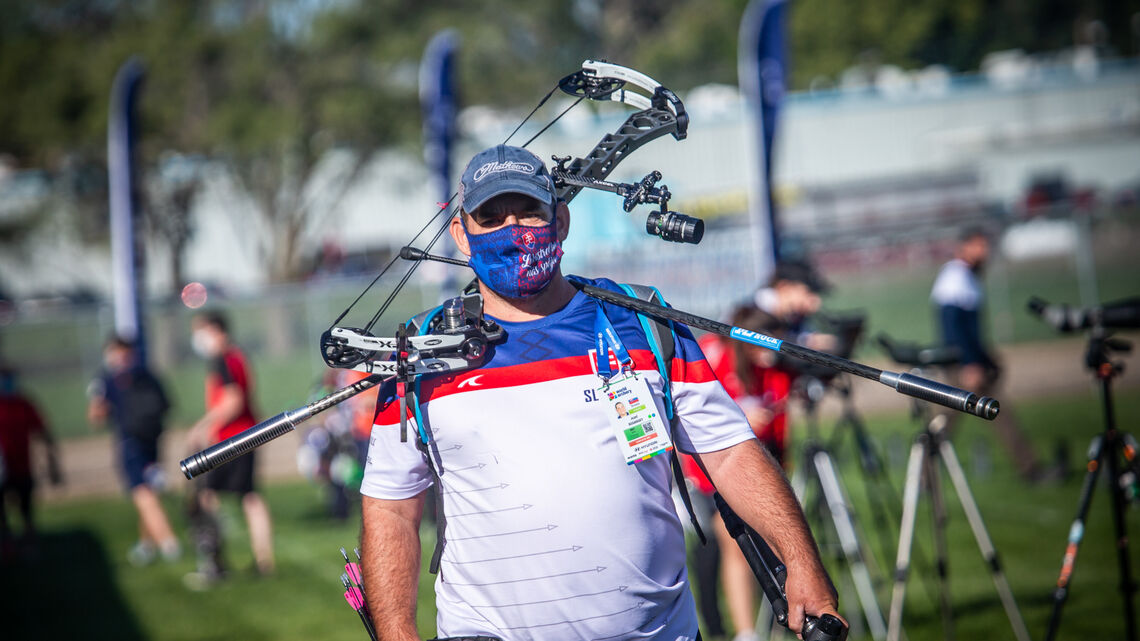
From the 10th floor of an anonymous hotel in Paris, a panorama of experiential wonder beckoned.
Nora Valdez gazed at the top of the Eiffel Tower with a mixture of enchantment and frustration: Here she was, in the City of Love for the first time, taunted by her proximity to a place she still could not quite reach.
“The first thing I thought when they gave us our keys was, please let it have a good side, please,” said Valdez, a member of Colombia’s illustrious compound women’s team.
“It was really frustrating,” she continued, “because as soon as I entered the room, I ran to the window and I was able to see it. I saw it every night. It was just a tiny bit, but I could see it.”
This was all for good reason. France welcomed stage three of the 2021 Hyundai Archery World Cup under the condition that archers adhere to strict COVID-19 restrictions.
An event bubble was established. Unleashing 100s of foreigners into the city – to its restaurants, shops and cultural sights – would be imprudent.
Still, the magic of Paris was alluring.
“It was important to remember why I was here,” Valdez recalled thinking. “I said, okay, I’m gonna leave that frustration until the end of the competition and deal with it then. Because first I need to focus on shooting.”
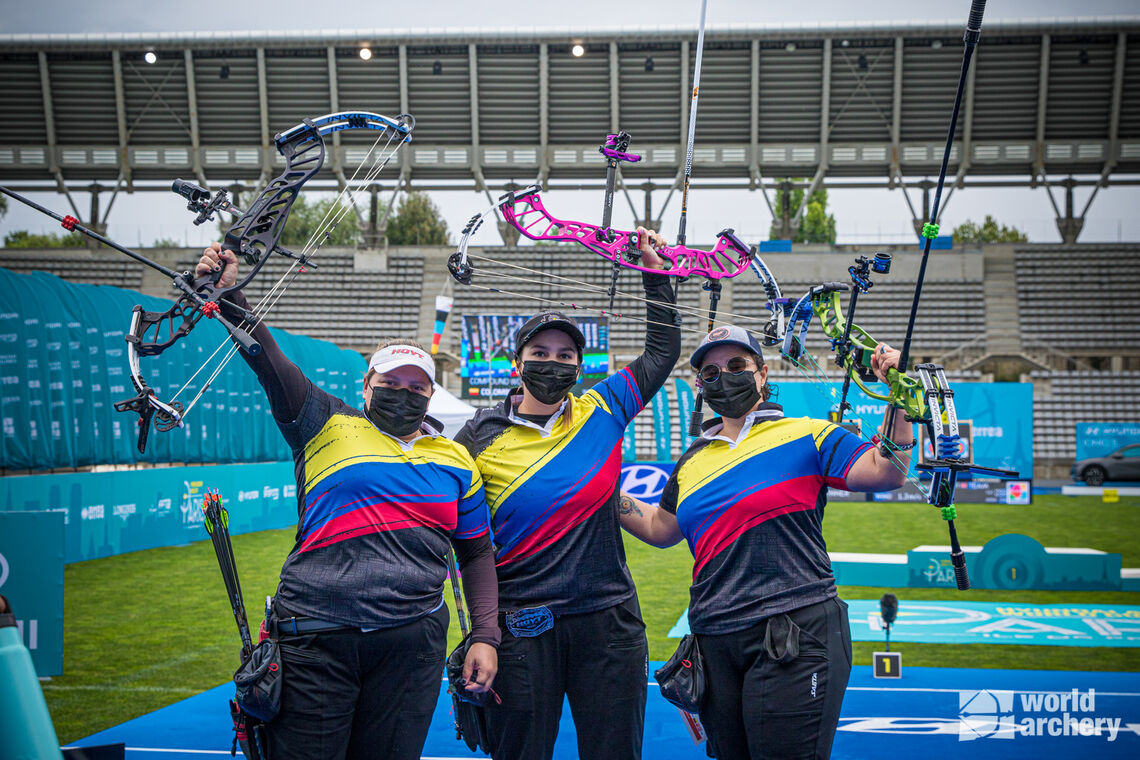
Colombia’s compound women fulfilled their obligations flawlessly in Paris, collecting three gold medals in the women’s team, mixed team and individual events.
Sara Lopez and Alejandra Usquiano battled for gold in an all-Colombia individual final that turned out to be one of the best of the year, claiming the top two spots on the podium and securing a second bid to the Yankton 2021 Hyundai Archery World Cup Final.
Emboldened by their success, the trio made a potentially risky request of their federation.
No longer confined by the restrictions imposed by the event bubble, would they perhaps be allowed to push back their flight so they could better experience the city?
“They said okay, as long as we were willing to pay the fees,” Valdez said. “So I asked around if anyone knew of a place to stay. A friend of a friend of a friend ended up helping us, and it was really great. It made the experience even more special.”
Archery tournaments, it should go without saying, are competitions first. These athletes are not on holiday. While there may be room in their schedules to engage with their surroundings, performing well on the shooting line is the archer’s principal obligation.
But they are also human beings.
“It’s not like we’re going to party or something like that,” Valdez said. “We’ve always been very disciplined, letting our coaches know what we’re doing, so it’s nice to go out and have different perspectives and think about things besides our responsibilities as archers.”
“There was so much time for us to do stuff in Paris,” she lamented, “and we couldn’t do anything with it.”
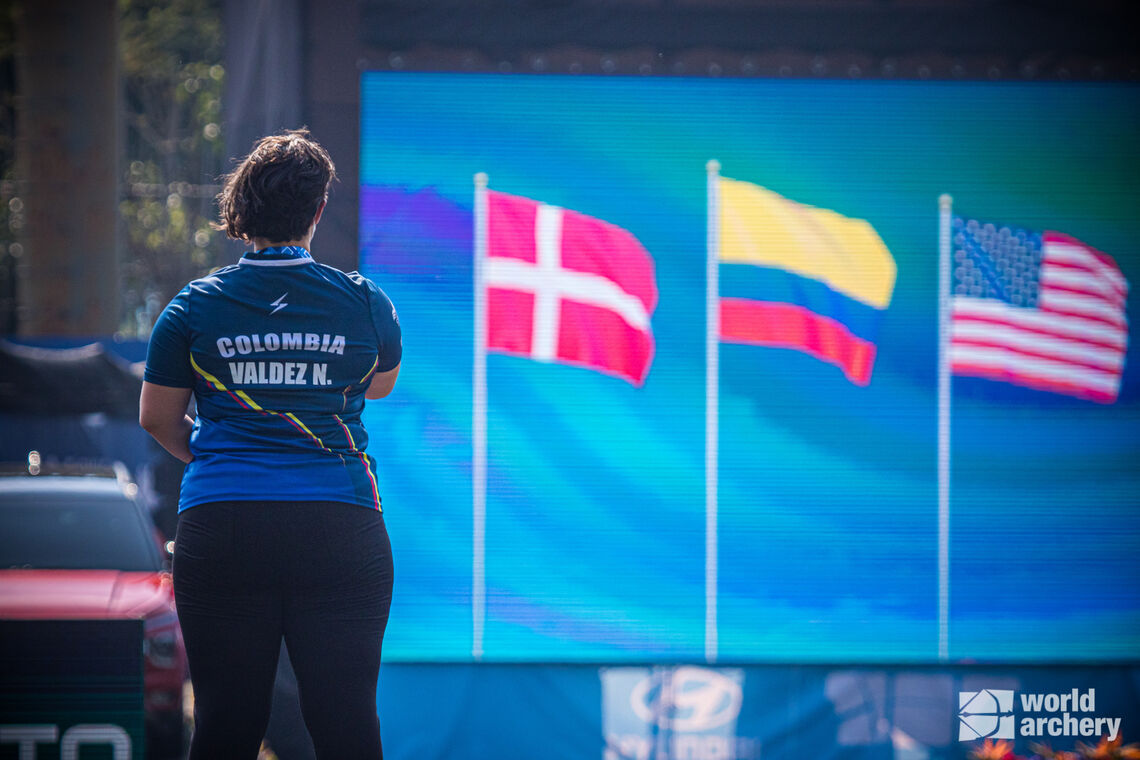
The benefits of travel extend beyond the inherent allure of exploration, Valdez said.
Training, competing and the other commitments of being an athlete still leave plenty of downtime throughout the day; without stimulating activities to occupy their time, archers could fall prey to intrusive thoughts or other unnecessary stressors that affect their performances.
“It’s necessary,” Valdez said. “Our first priority is always competing and training. But I don’t like to be in the hotel room, constantly thinking about what I shot or did in the competition.”
“You need something to clear your mind,” she added. “We could go for a walk, play video games or watch a movie. But in this particular case, it was Paris, so we wanted to go out and walk around, but it wasn’t possible.”
Valdez and Usquiano spent their two-day sojourn covering the city by foot – visiting the Eiffel Tower up close, admiring the street art and indulging in the local cuisine.
In addition to her world-class ability with a bow, Valdez is also a skilled photographer. Her camera is a constant companion.
“When I’m with a group, I’m always stopping to take photos and then running to catch up,” she said. “I really love to walk and take photos of people, buildings and anything that’s different from what I usually get to see.”
“Sometimes when we’re watching our phones, we miss so many amazing things that are beautiful,” she continued. “If I have my camera with me to reduce that, it’s even better. I think it’s good to have hobbies other than archery.”
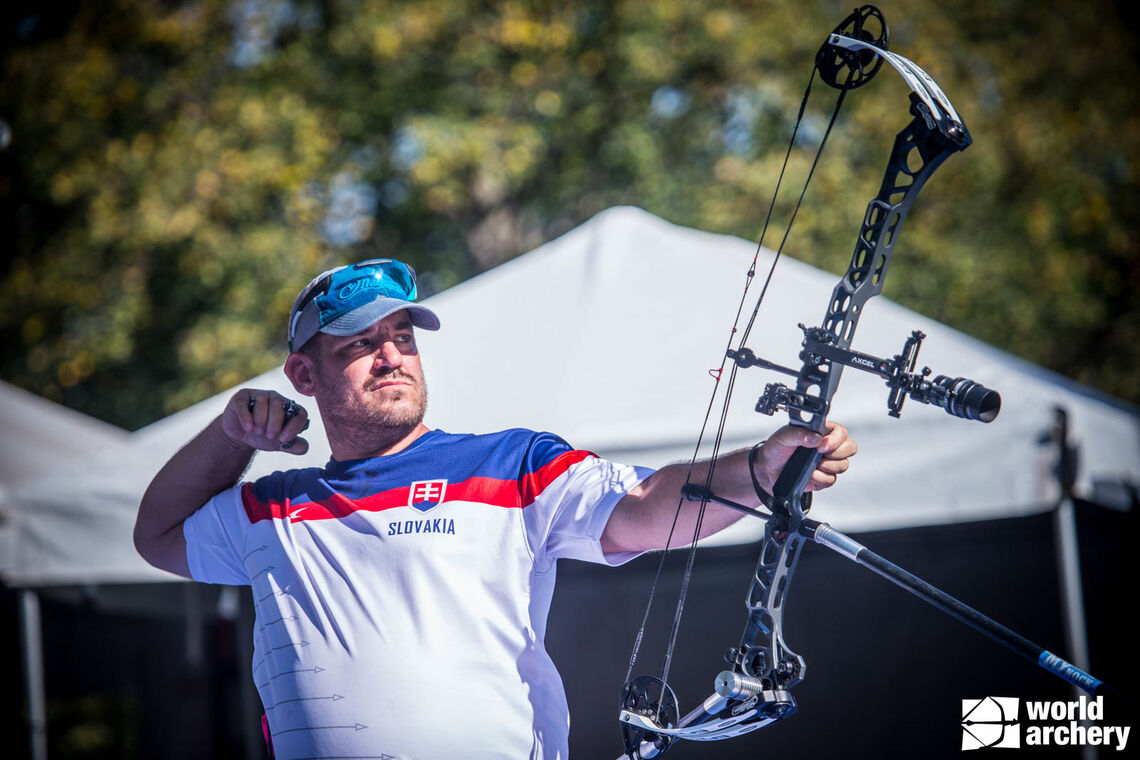
Many archers on the international circuit echoed that refrain: Interests outside of their sport don’t necessarily undermine their passion for winning or their commitment to their craft. If archery tournaments are hosted in popular tourist destinations, it’s only natural that the athletes would also find them appealing.
“Obviously, everything here is about archery. But we have to live a life as well,” Slovakia’s Jozef Bosansky said recently at the Yankton 2021 Hyundai World Archery Championships.
“I love going out and trying the different foods and seeing why these countries are so great. Because why stay at the hotel? Hotels are the same everywhere.”
Despite their relentless schedules, the archery calendar normally presents little openings for epicurean adventure. Bosansky said he fancies himself a gourmand, trying regional delicacies and taking inspiration from his travels when cooking back home.
While travelling, he’s sought out local spices to incorporate into his culinary pursuits back home.
Familiarising himself with different regional specialities adds both colour and a human connection to his travels, he said – an arena of polychromatic cultural discovery that invigorates the soul over the course of a grueling season.
“Shanghai and Antalya are great for spices, and after Paris I tried to make the snails myself,” he said. “It’s always interesting to touch and mix different ingredients that each country has to offer.”
Not everyone on the international circuit can devote such brain space to ancillary concerns. Many athletes are content keeping to the hotel restaurants and subsisting on meals provided to them by event organisers, as juggling outside pursuits with their sport can prove distracting.
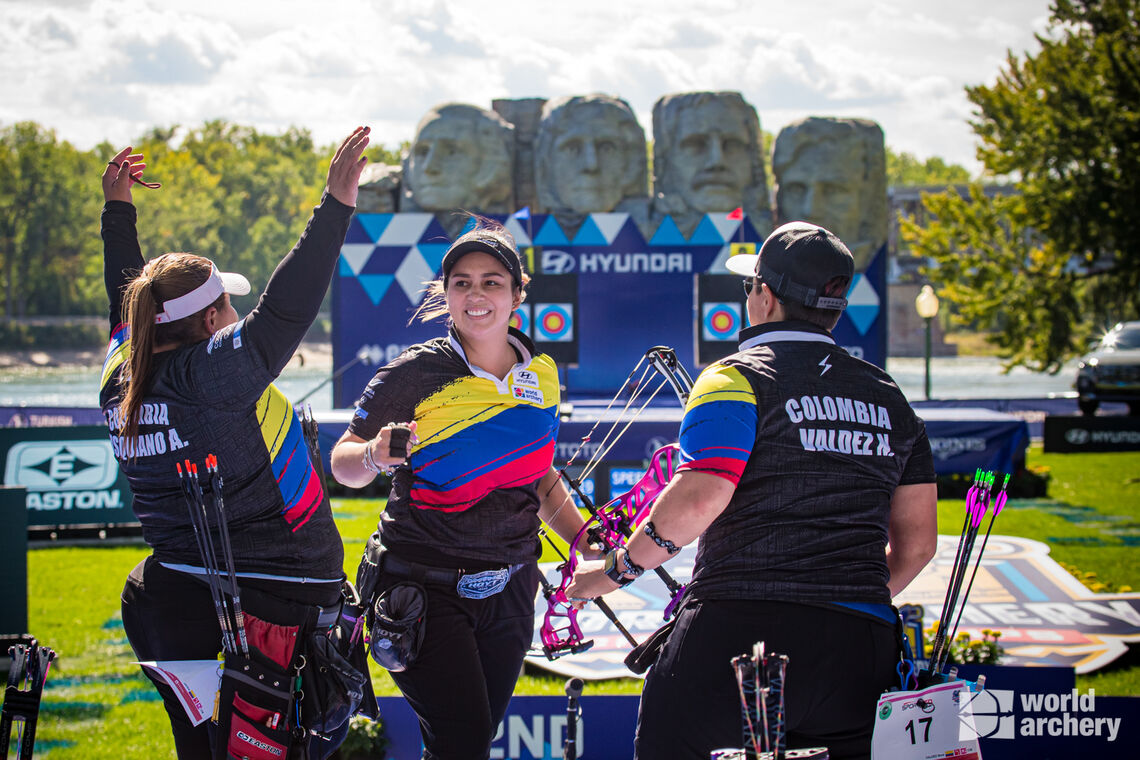
Many archers suppress their outside curiosities out of fear of losing a competitive advantage. Valdez said she sometimes feels that way as well, taking in the city on buses shuttling her to and from the competition venue.
“The most important thing is that I finish my training and finish my resting time, because that’s important, too,” she said. “You don’t want to leave a competition with mixed feelings knowing that you maybe could have done something different.”
But those who are able to manage both are rewarded for their effort.
Valdez had never left Colombia until she took a trip to Yankton for a competition in 2015. She had always dreamed of travelling the world, but the opportunity never presented itself. While she doesn’t expect extended trips in Paris to become commonplace, she hopes continued success will lead to additional allowances in the future.
“Paris was the exception because we won so many medals,” Valdez said. “If we ask all the time, they might think we aren’t taking our jobs seriously, so maybe we’ll only do it on special occasions.”
Paris might have been the exception for now, but such trips could become more frequent.
Colombia was back in full form at the world championships, repeating as compound women’s team, mixed team and individual champions, with Lopez winning the first world championship title of her incredible career.
She then went on to win a record-sixth Hyundai Archery World Cup Final one week later, beating teammate Valdez in the semifinals. With substantial evidence that tourism doesn’t impede performance, a precedent may have been set for additional adventures.
“Being able to travel through archery is something I’ve really grown to appreciate,” Valdez said. “Learning more about other cultures and the people of different countries and what makes us both similar and different, it’s a dream come true.”



